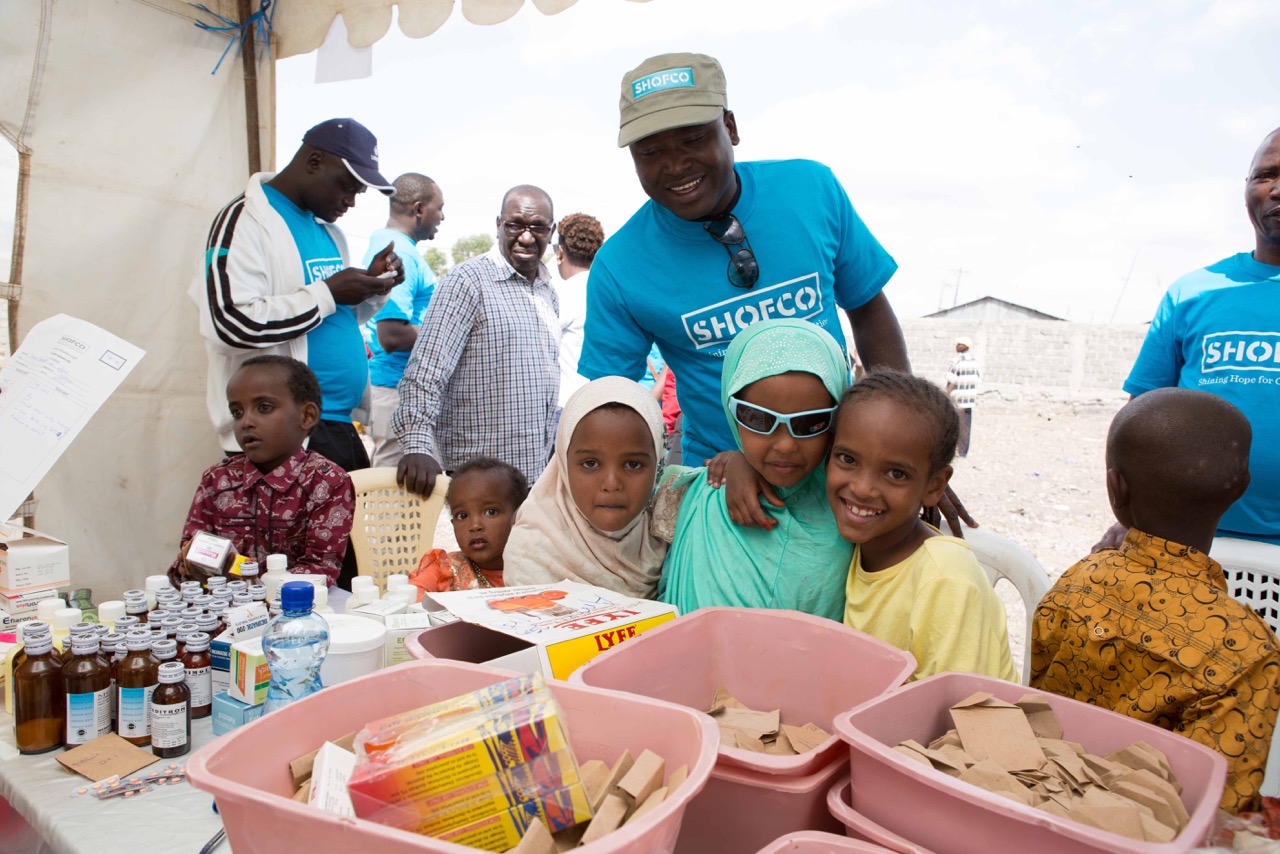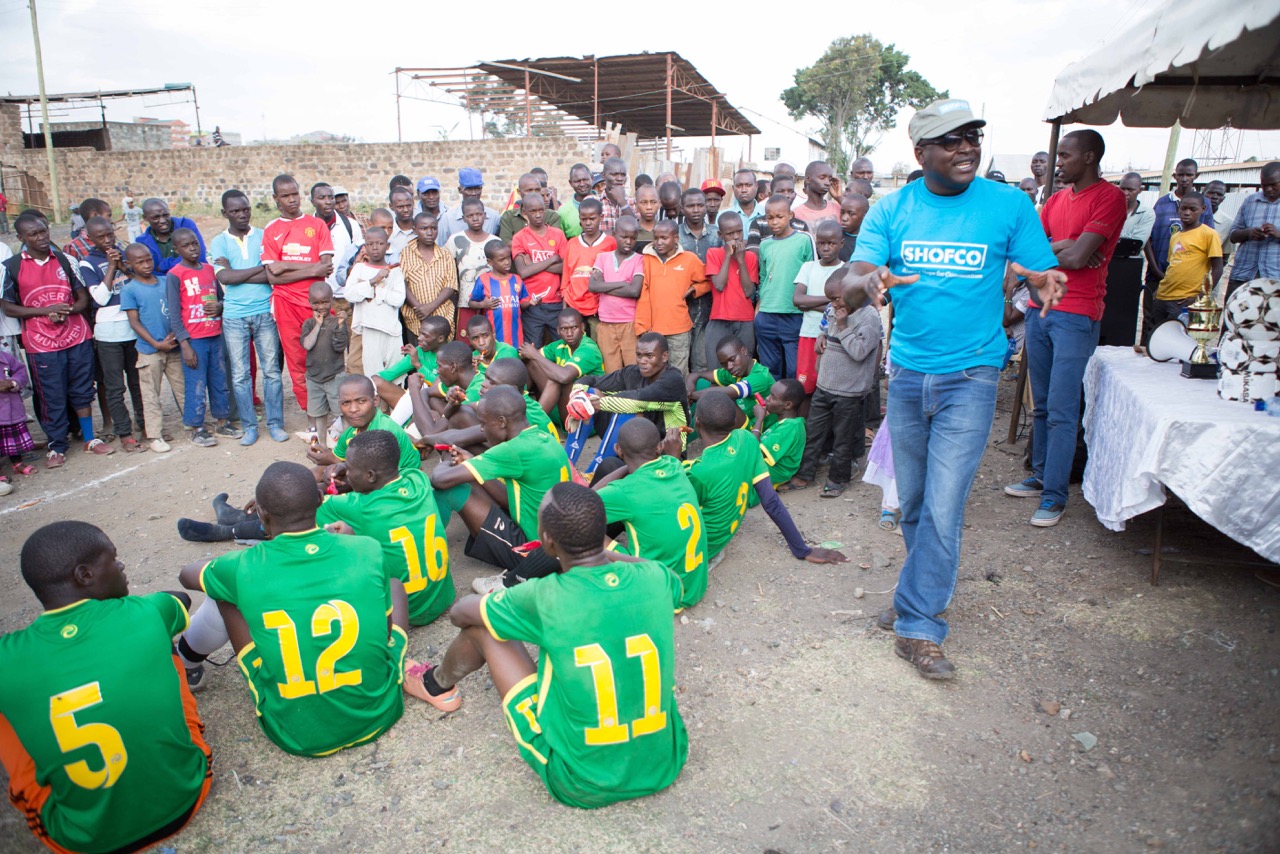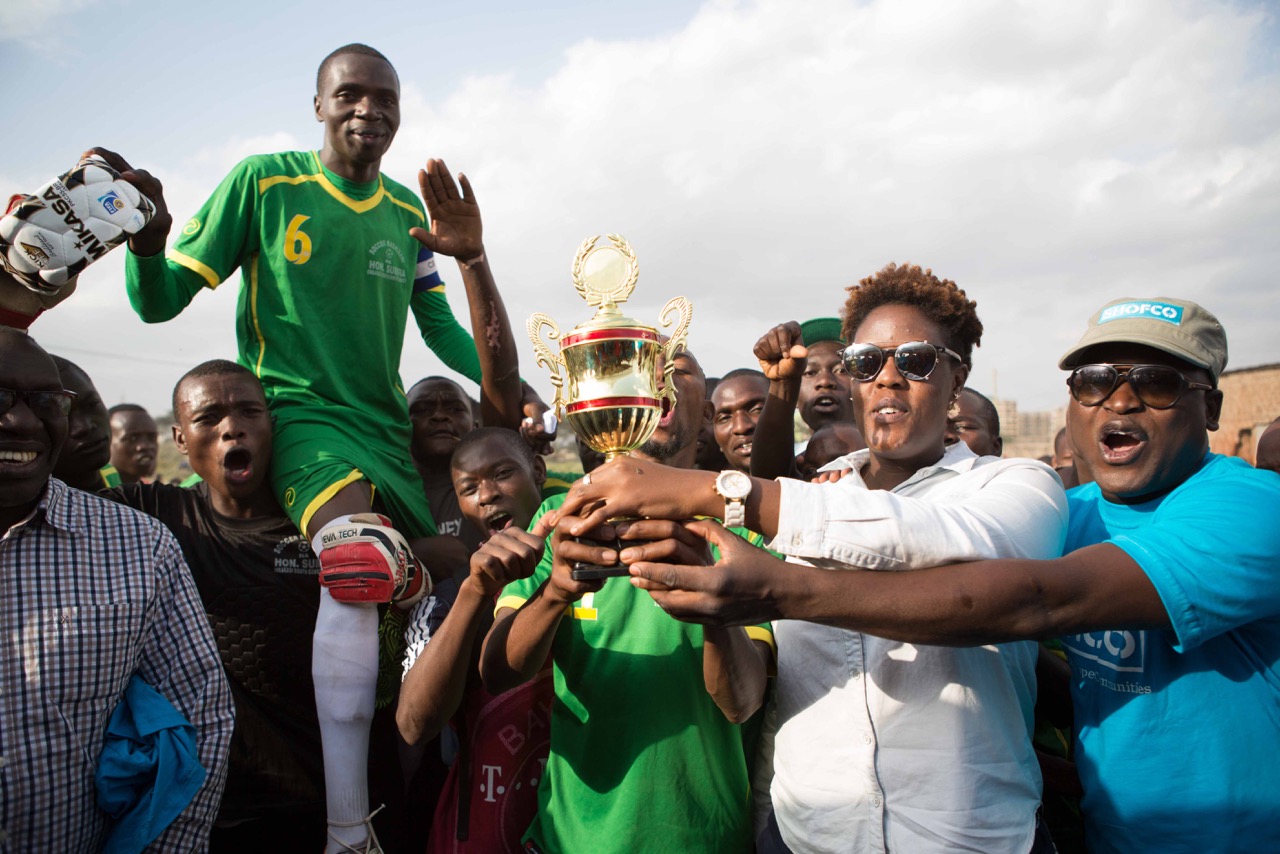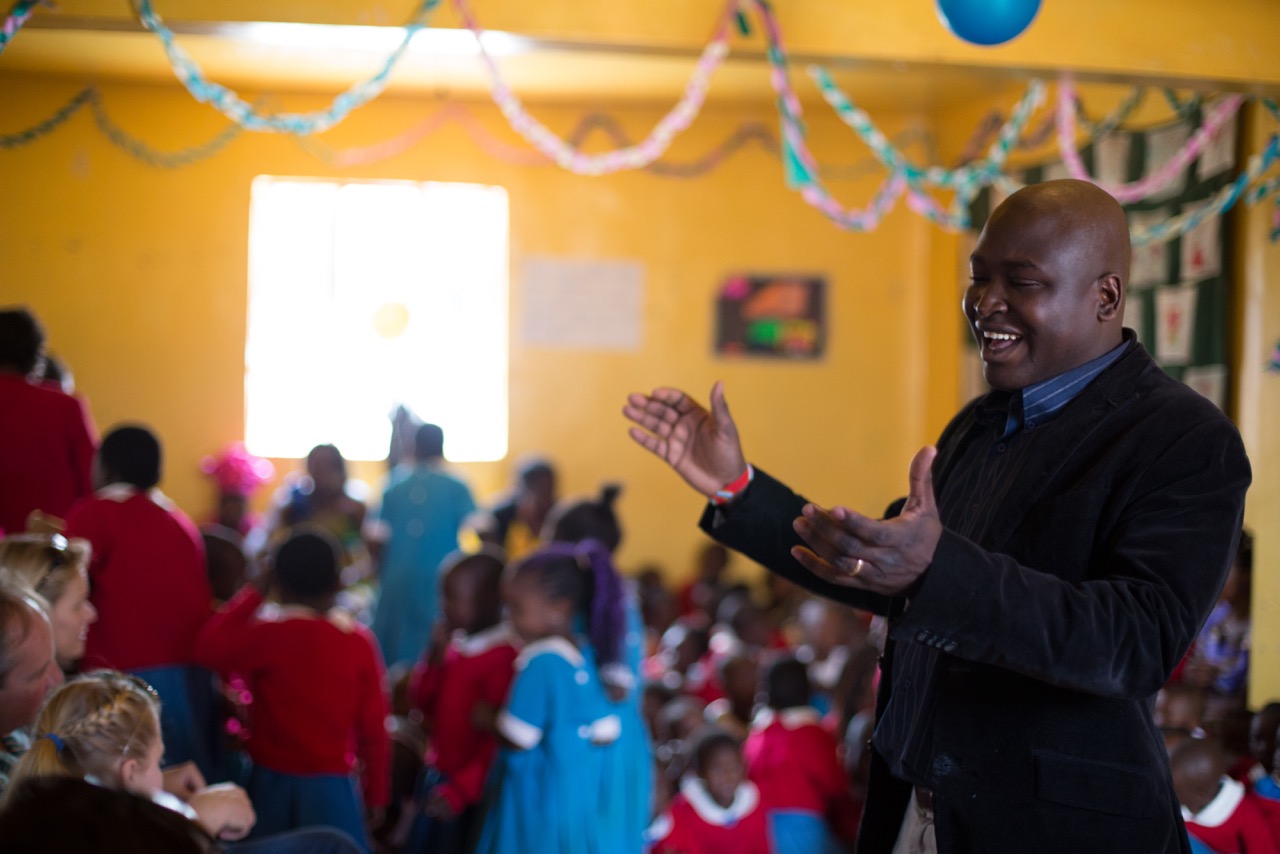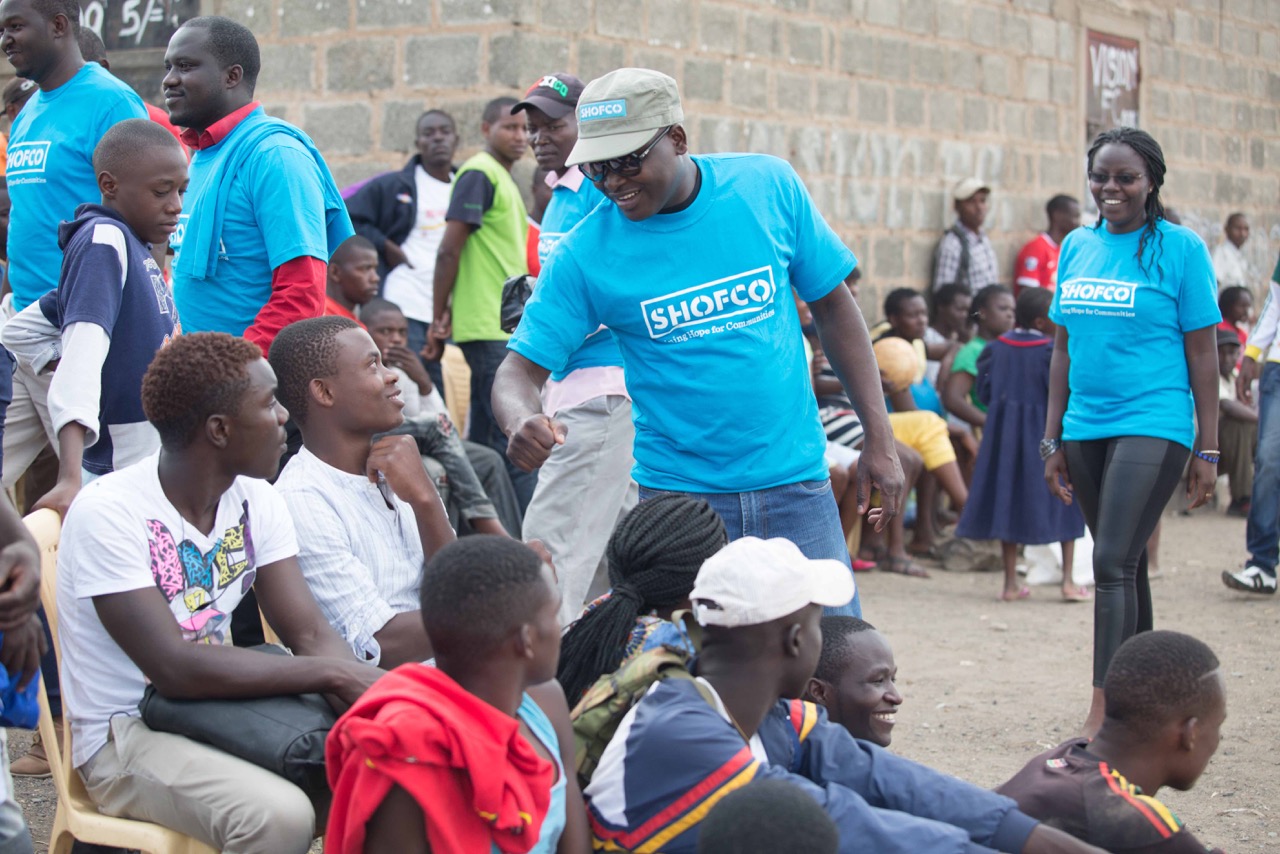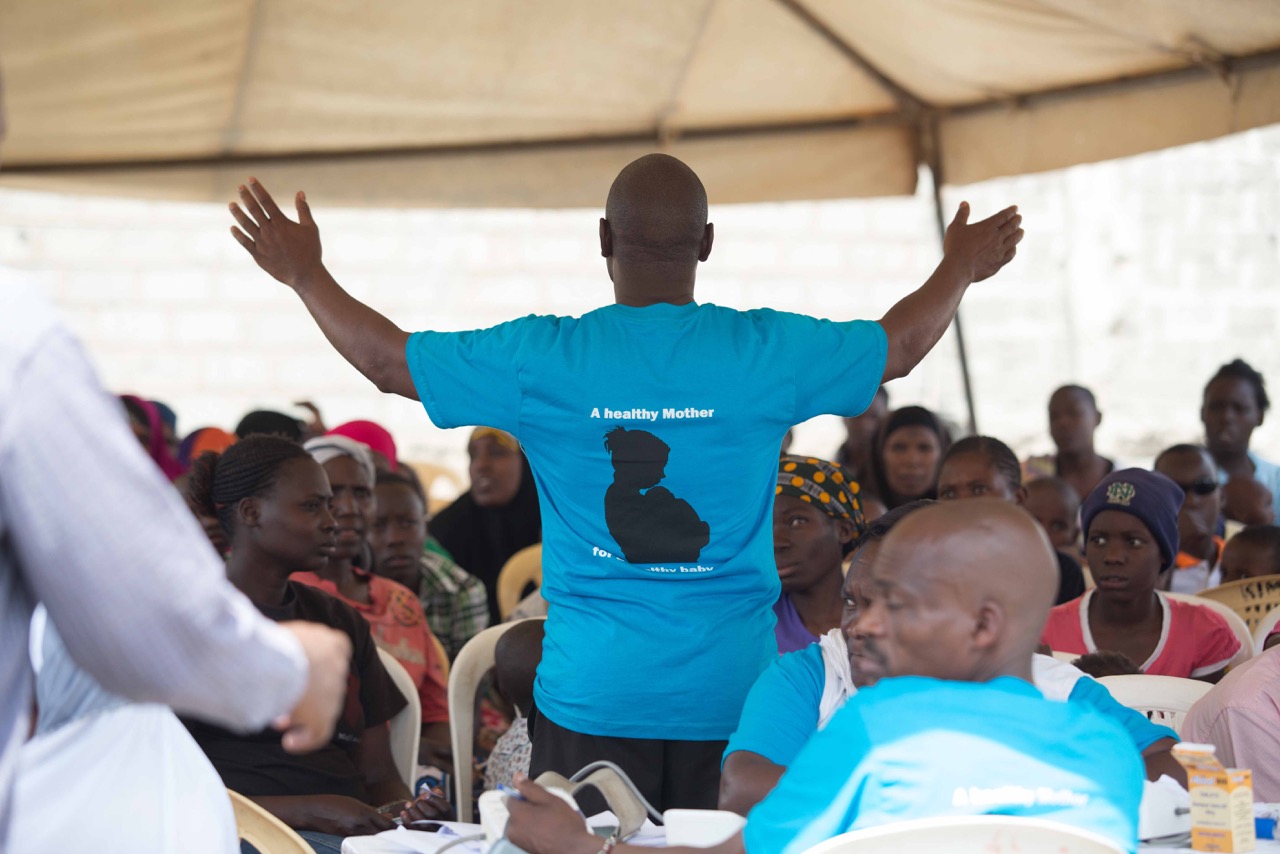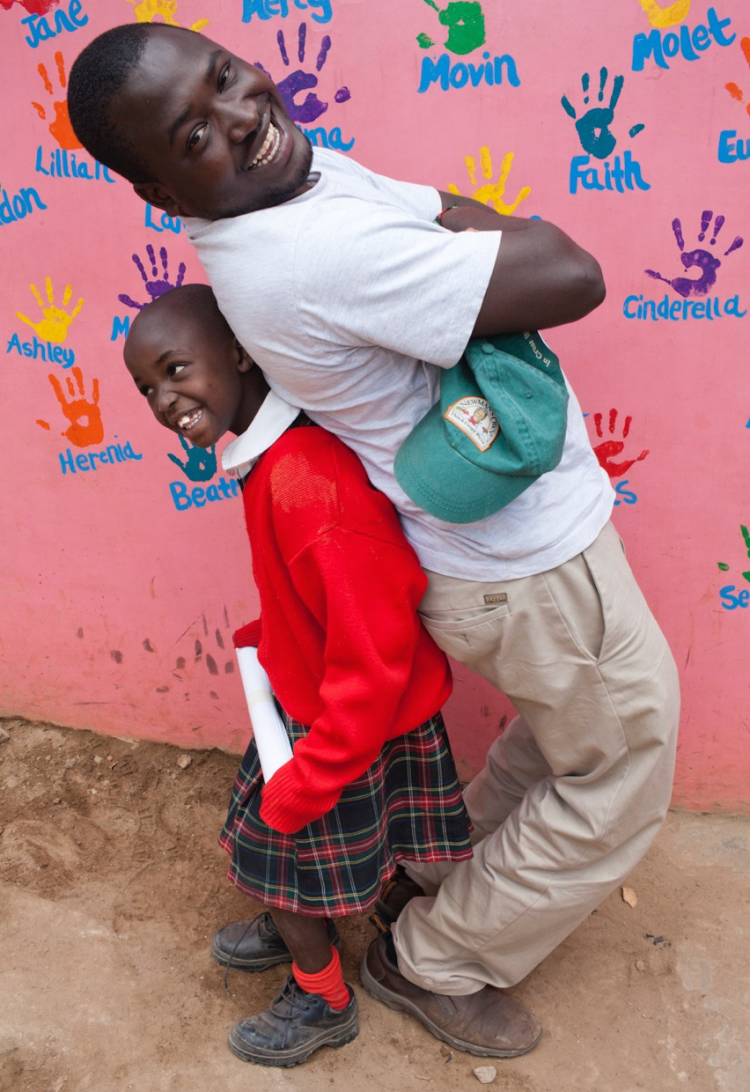If 30-year-old Kennedy Odede’s life had a slogan, it would be ‘From the people, for the people, by the people’. A former street child who lived for years in Nairobi’s Kibera slum, Kennedy founded Shining Hope for Communities (SHOFCO) in 2004 to bring social services to his community.
He started small. With savings from his $1 per day factory job, he purchased a soccer ball for Kibera’s youth. Since then, he and his wife, Jessica Posner, have grown the organisation using a model that links free schools for girls to community services for all. Now set up in two Nairobi slums, SHOFCO will serve over 76,000 people in 2015. From the people, for the people.
In the meantime, Kennedy has become an internationally recognised community organiser. His work has won him scholarships (Weslyan University in America), grants (Echoing Green), recognition (World Economic Forum Young Global Leader, Forbes 30 Under 30 Social Entrepreneur) and awards (Mohammed Ali Humanitarian Award). He has written (New York Times, CNN, and Project Syndicate) and been written about. Heads of state know him by name.
But for Kennedy, it is all about the people of Kibera who wake up day after day, craving something bigger and better for themselves. For him, the building blocks of change lie right there with them. By the people.
As Find Me Unafraid – a book he co-authored with Jessica, and we have an extract here – is about to hit bookstores, he spoke to me about his mother, the future of Kibera and what keeps him going.
By now, the story of you purchasing the soccer ball and starting SHOFCO is legend. But where did the vision behind that come from? Had you already been heading towards community organising?
My mother instilled in me the importance of education and gender equality though she herself had never experienced either. As I watched her and many others in my world struggle, I felt deep anger and injustice at a young age.
But I also knew that I wanted others in my community to experience those values she taught me – and to change things in Kibera.
By the time I was an adult, people started calling me Mayor, a name of affection for a man who is there for his people. It was then that I decided to use this power to create change. I wanted SHOFCO to be a movement that would bring people together through grassroots programs.
Growing up in Kibera is as much a gift as a curse. Many people have no idea what it means to live in compact quarters, almost on top of one’s family and neighbours. Community is forced due to lack of space and resources. People depend on each other. So this lifestyle was a part of my childhood. In this sense, becoming a community organiser was not my chosen path but rather a path that chose me. To hear the kind woman, who the day before gave me a piece of bread, now being beaten by her husband is something that anyone would rise up against. So, yes, I believe that where I was raised placed me in this direction from a very young age.
SHOFCO has been extremely successful – you now provide tuition-free education for girls, a community health clinic, eco-friendly toilets, and social services. But it all started with the school for girls. Tell us why you started there. What has worked and what hasn’t?
I realised that there was a lack of value placed on women and girls in Kibera, which was the reason that many of the most vulnerable girls never had the opportunity to go to school. Providing Kibera’s girls with superior education and promoting female leadership was key to gender equality, which in turn could help break the cycle of urban poverty.
We believe that communities that have greater gender equality will also have more hope and be less impoverished because women are central to development and family. So far, our SHOFCO model has proven very successful and we were able to replicate it in Mathare, Nairobi’s second- largest slum. Our hope is that this model continues to be replicated to help transform urban slums around the world.
I found your blog Black Kennedy Odede. It is wonderful because it is intimate and you weave in inspirational messages directed at other young people. What do you think young people in Kibera most need to hear? What inspires them most?
Unfortunately, I feel that most people in Kibera feel unworthy and invisible. Since they haven’t experienced anything outside of Kibera, it is very hard for them to imagine a better life. Yet the people in Kibera have such tenacity and are extremely entrepreneurial if given the opportunity. I have seen businesses grow and inventions come out of this innovative group of thinkers.
One of the cruellest aspects of Kibera is the wasted human potential, and without access to quality healthcare and basic resources, it is very difficult for people in Kibera to be the best they can be.
I think young people need to know that they are important; that their dreams are possible; and that there is another world out there. In order to inspire the girls at our school, SHOFCO brings in other powerful Kenyan women who can share their stories and work with them as mentors. These women awaken the dreams of SHOFCO girls. I know that in Kibera there is so much talent and potential to change the world.
You wrote a well-known piece for CNN.com about how Mandela inspired you as a youth. In it you state, ‘Yet as I look at the larger structural problems of urban poverty in my country, I feel my work has just begun.’ What do you mean by that?
My work with schools for girls is just the beginning. SHOFCO tackles urban poverty by nurturing the next generation of female leaders while also improving water, sanitation and health standards. Yet with all of this improvement, there are still many larger problems in my country. One of the cruellest aspects of Kibera is the wasted human potential, and without access to quality healthcare and basic resources, it is very difficult for people in Kibera to be the best they can be.
In one of your blogs you describe an incident at Wesleyan where you felt intensely the contradictions between that life and your life in Kibera. What was it like living and going to university in America? What surprised you most about the US?
First, I am so thankful that I was given the opportunity to attend Wesleyan, which is such a prestigious university, and receive an education that unfortunately so many people in Kibera are not able to get. Attending a university in America made me reflect on my lifestyle back home and how many basic necessities are taken for granted in the US. At Wesleyan, I had clean drinking water, police and security to keep us safe, food every day and other basic necessities that I did not have at home. All of this made me more determined to bring these same resources to my own community.
We created SHOFCO as a grassroots model that can be implemented to improve all slums around the world. Our hope is that other communities are able to implement this model.
I experienced learning on a full stomach, wearing clean and warm clothes after having had a restful sleep. Many of my community members are constantly fighting to learn while battling exhaustion, hunger and rashes from sleeping on a dirty floor. I learned in what I consider luxury but most see it as a human right. It was difficult to explain the intense sense of gratitude paired with guilt each day of university, because I knew that my community at home was sitting in a classroom trying to learn under impossible conditions.
What community-based organisations inspire you?
I am constantly inspired by the men and women that have created their own organisations in Kibera and Mathare. I have seen soccer teams, sewing circles, slam poetry groups and hundreds of other community groups blossom. They are an inspiration and true testament to how a small seed can grow into a full tree.
Do you collaborate with any other groups in Kenya or elsewhere?
Sadly the reputation of someone from a slum is that they are lazy, stupid and have no work ethic. Person by person we are working with for-profit companies in Kenya to reverse this ignorance and prove how industrious and diligent my community members can be. We partner with Barclay’s Kenya, MODE, Mitsubishi Kenya, Vivo Energy, and many others. Beyond this, we work everyday with leaders in Kibera, Mathare and other slums around my country.
What is your vision for SHOFCO for the next 10 years?
We created SHOFCO as a grassroots model that can be implemented to improve all slums around the world. Our hope is that other communities are able to implement this model. After opening Mathare in 2014, we plan to employ more than 250 Kenyans by the end of 2015. We are not only growing our schools, but also our health clinics and water sanitation services.
Are there any threats to SHOFCO’S continued success?
There are many threats to every slum, the largest being terrorist groups plucking our vulnerable youth. It is the responsibility of each individual to open their eyes to this reality and focus on giving young people opportunities before these groups infiltrate. I believe SHOFCO will become a leading movement for the urban poor, providing an innovative solution to the interconnected challenges posed by urban poverty.
With @ChelseaClinton at #ItsYourWorld party! @JessRPosner @KennedyOdede got to spend time with @billclinton pic.twitter.com/9lT8EKxEDJ
— Find Me Unafraid (@FindMeUnafraid) September 20, 2015
Find Me Unafraid, which you co-authored with your wife Jessica, is coming out on October 13. What is the book about?
The book starts out by Jess and me telling our individual stories – how we came from two completely different worlds and yet somehow our paths collided. The book shares our love story and the passion we shared for transforming Kibera and our struggles and successes in building SHOFCO.
What keeps me going is my dream to nurture the next generation of female leaders to have safe and healthy families, give back to their community and change our country.
We tell our story in both voices so readers can understand it from both an insider’s and an outsider’s perspective. The story has lived inside our hearts for over eight years and as our programmes grow and as more people hear about the change we are creating, it felt important to place our experiences on paper, for us, for our community and for the world to know that love can truly change not only two people, but also two continents.
What three words would you use to describe yourself?
That’s hard because who I am now and who I was at age 10 and who I will become over the next 30 years are constantly shifting. I was an angry child, torn apart by the injustice of the world and constantly warring with my moral compass and the need for survival. Now I am a hopeful young thirty-year-old man.
A man who has been given such opportunity that hope rushes through my veins and oxygenates every cell of possibility. In the future I pray to persevere. To continue to move forward and remember my grit as a young child searching for food. I hope to never become complacent and to never forget that hunger I felt. This will help me to maintain my optimism, which I think is one of my most important qualities.
What keeps you going?
What keeps me going is my dream to nurture the next generation of female leaders to have safe and healthy families, give back to their community and change our country. For me, success is not about wealth or material achievements, but rather people investing in their community and making change for the betterment of everyone. My soul feels joy when I do good, and if I know that a change in our country came through SHOFCO, It would bring me a lot of joy.
Find out about SHOFCO
Read an extract from Find Me Unafraid.
Follow Kennedy on Twitter @KennedyOdede

